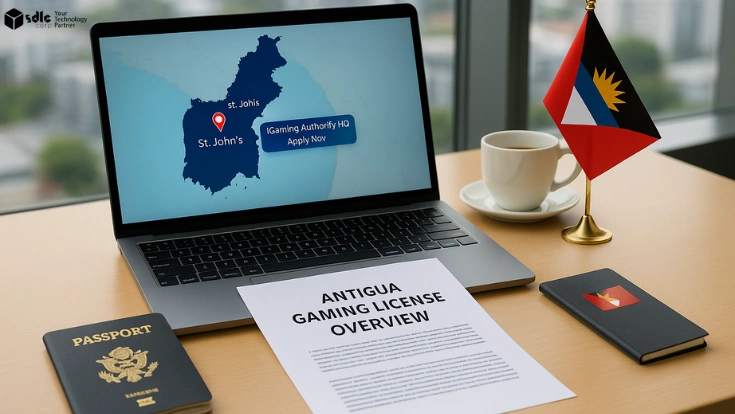Introduction
The global iGaming industry has seen exponential growth over the past decade, with operators and entrepreneurs seeking reputable jurisdictions to license their businesses. Among the top destinations, Panama stands out for its combination of legal credibility, cost efficiency, and regulatory clarity. A Panama Gambling License enables operators to legally offer online gaming services, including casino games, sports betting, and poker, while benefiting from favorable tax treatment and a business-friendly environment.
1. Overview of Panama’s Gambling Regulatory Framework
Panama’s gambling industry is regulated by the Junta de Control de Juegos, or the Gaming Control Board. This authority is responsible for granting, supervising, and enforcing gambling licenses under Law No. 32 of 1977 and subsequent regulations.
A Panama Gaming License allows operators to legally provide online gambling services to players worldwide, with the exception of residents of Panama unless specifically authorized. The legal framework supports a broad range of gaming verticals, including:
Online casinos
Sportsbook betting
Poker networks
Skill-based games
Unlike some jurisdictions, Panama has established clear licensing requirements, straightforward application procedures, and an efficient approval process that typically takes just a few months.
2. Step-by-Step Application Process

The Panama gambling license application process is structured, transparent, and faster than many competing jurisdictions. Here is a step-by-step guide:
Step 1: Prepare Documentation
Gather essential documentation, including:
Incorporation documents for the Panama company.
Passports and KYC information for directors and shareholders.
A comprehensive business plan outlining the gaming model, target markets, and projected revenues.
Software agreements with platform providers.
Internal control and Anti-Money Laundering (AML) policies.
Step 2: Incorporate a Panama Company
Applicants must set up a Panamanian corporation. Key requirements include:
At least one director and shareholder (can be non-resident).
Registered office address in Panama.
Appointed compliance officer.
Step 3: Submit Application
Submit all documentation to the Junta de Control de Juegos along with the application fee. The regulator will conduct an initial review for completeness.
Step 4: Due Diligence Review
Authorities will perform a thorough background check on:
Company directors and ultimate beneficial owners.
Funding sources and financial statements.
Software platform compliance.
Step 5: License Issuance
Upon approval, the Panama Gaming License is issued. This typically takes 60–90 days, depending on the completeness of the application.
Step 6: Operational Setup
Once licensed:
Integrate payment solutions.
Configure player verification and AML controls.
Activate the platform and begin operations.
Receive expert guidance at every stage of your gaming license journey from documentation to approval. Our legal and compliance specialists make the process seamless across top jurisdictions. Need assistance? Talk to our team
3: Benefits of a Panama Gambling License

A Panama Online Gaming License offers several advantages that attract startups and established gaming companies alike:
- Credibility & Recognition
Panama is regarded as a respected offshore jurisdiction with robust legislation and regulatory oversight, unlike “gray area” markets that lack legal clarity. - Tax Advantages
Gaming companies registered in Panama enjoy favorable tax treatment, including exemptions on income generated outside Panama. This enables more cost-efficient operations compared to high-tax regions. - Efficient Licensing Timeline
Whereas some jurisdictions like Malta or Isle of Man can take 6–12 months, a Panama gambling license can be issued in as little as 60–90 days. - International Banking & Payment Processing
Panama-licensed companies often have easier access to global merchant accounts and banking services. - Flexible Business Structures
There are no requirements for local shareholders, making Panama ideal for international operators.
4: Types of Panama Gambling Licenses

Panama offers several categories of gaming permits tailored to different business models. The main license types include:
Online Casino License
Permits operators to provide casino games, slots, roulette, blackjack, and other chance-based games.Sportsbook and Betting License
Allows fixed-odds betting, sports betting, virtual sports, and racing.Poker & Skill Games License
For online poker rooms and games of skill that involve prizes.Hybrid License
A combined permit covering multiple gaming activities under a single license.
Each license requires detailed documentation and adherence to compliance measures.
5. Panama Gambling License Costs and Timeframes

One of Panama’s most attractive features is its transparent cost structure and fast processing times.
Estimated costs include:
Application Fee: Approximately $40,000 USD (may vary depending on scope).
Annual License Renewal Fee: $20,000–$25,000 USD.
Corporate Formation Fees: $3,000–$5,000 USD.
Legal and Advisory Fees: Varies by provider.
Timeframe: Average 2–3 months from submission to issuance.
Compared to jurisdictions like Malta (where licensing can exceed $100,000 in setup costs), Panama offers a cost-effective alternative for startups.
6. Compliance and Reporting Requirements

Holding a Panama Gambling License requires adherence to strict compliance measures, including:
AML Compliance: Ongoing monitoring of transactions to detect and prevent money laundering.
Player Verification: Mandatory KYC checks for all players before withdrawals.
Transaction Reporting: Regular submission of financial reports and gaming activity summaries.
Software Audits: Periodic verification that your platform meets technical standards.
Responsible Gaming Measures: Implementing policies to protect vulnerable players.
Failure to comply can result in penalties, suspension, or revocation of the license.
7. Taxation and Banking Considerations

Panama offers significant tax incentives for licensed iGaming companies:
Corporate Tax: 0% on income derived outside of Panama.
Withholding Taxes: Exemptions may apply depending on the nature of operations.
Banking: Access to reputable banks and international merchant accounts, especially if your business maintains strong compliance documentation.
Important: Although Panama does not tax offshore income, you may have tax obligations in your players’ countries or your home jurisdiction. Always consult an international tax advisor.
8. Panama vs Other Jurisdictions: A Comparative Analysis

When evaluating licensing options, many operators consider Panama, Curaçao, and Malta. Here’s how they compare:
| Feature | Panama | Curaçao | Malta |
|---|---|---|---|
| Licensing Time | 2–3 months | 1–2 months | 6–12 months |
| Setup Costs | $50,000–$70,000 | $25,000–$35,000 | $100,000+ |
| Tax Rate | 0% offshore | 2%–5% effective | 5%–35% |
| Regulatory Reputation | Medium–High | Medium | High |
| Target Market | Global (restrictions apply) | Global (some banks reluctant) | Europe and beyond |
| Ongoing Compliance | Medium | Low–Medium | High |
9. Tips for a Successful Application
Work with experienced consultants. A qualified advisor can save time and avoid costly mistakes.
Prepare detailed AML policies. Regulators scrutinize your controls carefully.
Choose reputable software providers. Your platform must meet Panama’s technical standards.
Maintain transparency. Disclose ultimate beneficiaries and funding sources clearly.
Conclusion & Next Steps
A Panama Gambling License offers a compelling blend of affordability, credibility, and efficiency for online gaming operators. From rapid licensing timelines to favorable tax treatment, Panama remains a leading jurisdiction for companies targeting international markets.
Ready to take the next step? Talk to our licensing specialists today and discover how we can help you launch with confidence.
FAQ's
How long does it take to get a Panama Gambling License?
The typical timeframe is 2–3 months from submission to approval, provided all documentation is complete and accurate. Working with experienced consultants can help avoid delays during due diligence.
What types of gaming activities are covered under a Panama Online Gaming License?
The license can cover online casinos, sports betting, poker, and skill-based games. You can also apply for a hybrid license that combines multiple activities under a single permit.
Do I need to open a physical office in Panama?
No physical office is required. However, you must incorporate a Panama company, appoint a local registered agent, and maintain corporate records in the country.
Is Panama suitable for crypto gaming platforms?
Yes, Panama does not prohibit cryptocurrency transactions, but you must implement strict Anti-Money Laundering controls. Always consult a legal advisor to structure crypto payments compliantly.
Can I target players in the European Union with a Panama license?
While Panama licenses are internationally respected, some EU countries require additional local authorizations. It’s essential to check local laws before marketing to EU residents.
What are the main compliance obligations after getting licensed?
You must maintain ongoing AML reporting, player verification (KYC), regular financial audits, and responsible gaming policies. Non-compliance can result in penalties or license suspension.





